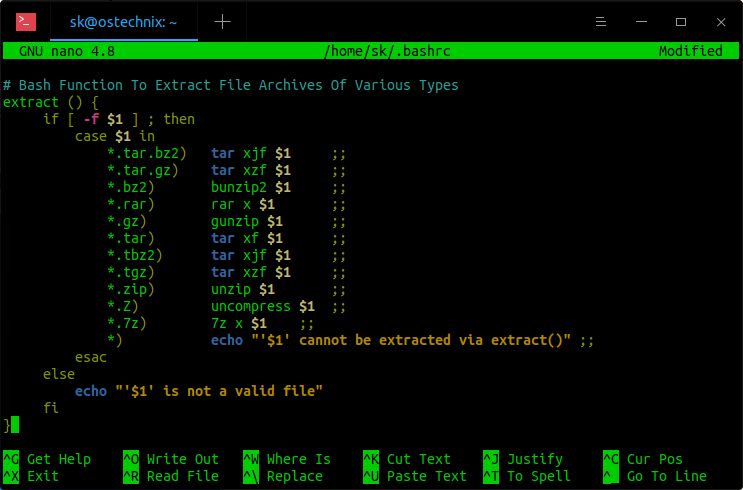

I hope this quick tip on finding Unix and Linux files and directories that don't match a filename pattern (not matching a pattern) has been helpful.
#Bash find file by owner how to
Summary: How to find files that don’t match a filename pattern type f -not -name "*.html" -exec ls -l \ Here’s how to run a simple Unix ls command on them:įind. Of course it’s usually not enough to find files not matching a filename pattern usually you want to do something with them. Find files not matching a filename pattern and doing something with them html file extension (filename pattern).Īlso, if you’re not familiar with it, the -f argument in that find command means “just look for files,” and don’t return search results for directories.

This Linux find command using the “not” operator creates a list of all files not ending with the. Fortunately with the newer Unix/Linux find syntax this solution is pretty easy, you just include the -not argument, like this: In my case I just ran into a situation where I needed to find all files below the current subdirectory that are NOT named with the filename pattern *.html. log.gz via regex : paths : /var/log patterns : "^.*?\\.(?:old|log\\.gz)$" size : 10m use_regex : yes - name : Find /var/log all directories, exclude nginx and mysql : paths : /var/log recurse : no file_type : directory excludes : 'nginx,mysql' # When using patterns that contain a comma, make sure they are formatted as lists to avoid splitting the pattern - name : Use a single pattern that contains a comma formatted as a list : paths : /var/log file_type : file use_regex : yes patterns : _.Unix/Linux find command “patterns” FAQ: How do I find files or directories that don’t match a specific pattern (files not matching a regex pattern, or filename pattern)? name : Find /var/log files equal or greater than 10 megabytes ending with. log.gz : paths : /var/log patterns : '*.old,*.log.gz' size : 10m # Note that YAML double quotes require escaping backslashes but yaml single quotes do not. name : Recursively find /tmp files older than 2 days : paths : /tmp age : 2d recurse : yes - name : Recursively find /tmp files older than 4 weeks and equal or greater than 1 megabyte : paths : /tmp age : 4w size : 1m recurse : yes - name : Recursively find /var/tmp files with last access time greater than 3600 seconds : paths : /var/tmp age : 3600 age_stamp : atime recurse : yes - name : Find /var/log files equal or greater than 10 megabytes ending with.

Collections in the F5networks Namespace.Collections in the Containers Namespace.Collections in the Cloudscale_ch Namespace.Collections in the Chocolatey Namespace.Collections in the Check_point Namespace.Virtualization and Containerization Guides.If we append the -l option to it, the command will show us all the files that contain the particular text. By default, it shows us the lines in the files that contain the particular text. Protecting sensitive data with Ansible vault grep command in Linux that is used to search for files containing a specific text or string. Hi Im working on a simple script that recieves a directory ex:'/var/www/' a user ex:'usr' and some permissions ex:'drwxr-xr-x' and has to show only the files/folders inside the directory owned by the selected user and only with the desired permissions.


 0 kommentar(er)
0 kommentar(er)
